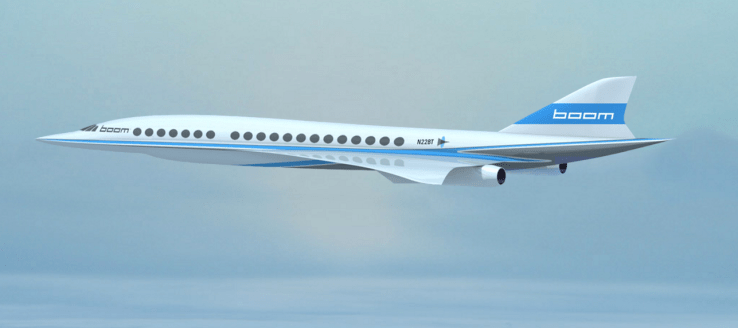
Have you heard about Boom?
Boom is a relatively new startup that’s aiming to build something pretty crazy. They’re not building an app… or a social network… or even some new gadget for the Kickstarter crowd.
Boom wants to build planes. Really, really, really fast planes.
Specifically, they’re trying to design and build a supersonic passenger plane that goes 2.2x the speed of sound. If all goes to plan, they’ll be able to shuttle people from New York to London in 3.5 hours, and SF to Tokyo in 4.5.
Sound crazy? I wouldn’t disagree. It’s worth noting that the company is in the very early days for something as intensive, massive, and hugely expensive as designing and producing a passenger aircraft. They’re still working on their first prototype, and hope to fly it by late next year.
But it’s also worth noting that the team behind the plane has some serious talent in its blood: the company’s 11 employees have collectively contributed to over 30 aircrafts — having worked on things like the autopilot system on the 787, fighter plane engines, and flight dynamics on Spaceship Two. Some of these guys are ex-NASA, ex-Lockheed, or ex-Boeing.
Today, another big name is getting attached to the project: Virgin.
Boom is announcing today that Richard Branson’s Virgin Group has optioned ten planes, in a deal ultimately valued at about $2 billion dollars. Boom also says they’ve optioned 15 additional planes to a European carrier that it declined to name, bringing the total value of the optioned planes up to $5 billion.
Now, this doesn’t mean that Virgin has bought the planes — it’s a bit too early for that. They’ve signed a letter of intent, meaning that, having seen the nitty-gritty specs of the plane and the company’s plans for moving forward, they intend to buy 10 planes if everything comes together as planned.
But it also looks like Virgin is going to help make that happen: Boom founder Blake Scholl tells me that Virgin Galactic’s space division, The Spaceship Company, has committed to helping build and test the planes, including helping with the supersonic testing when the time comes.
Read More
Comments
Post a Comment